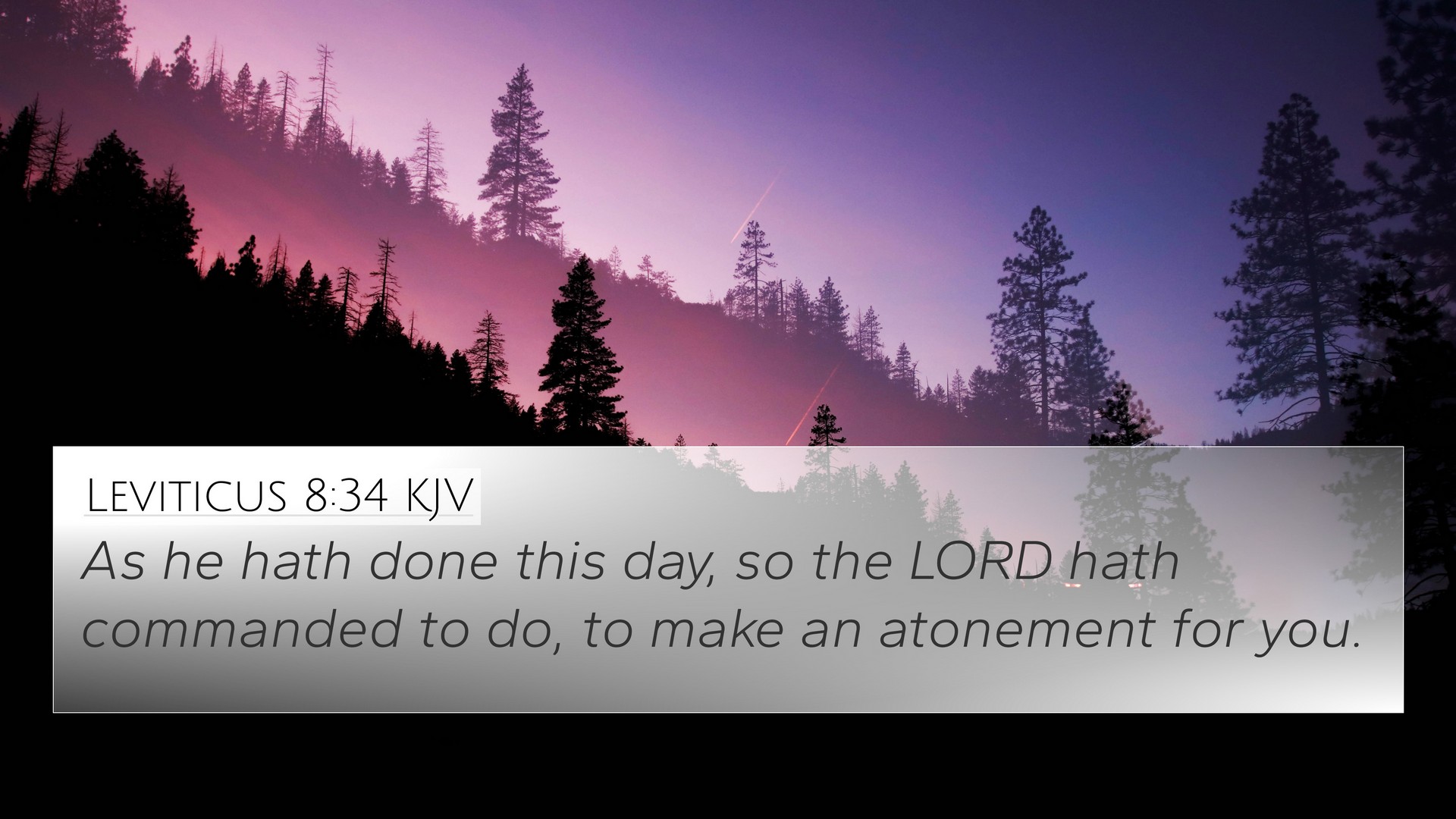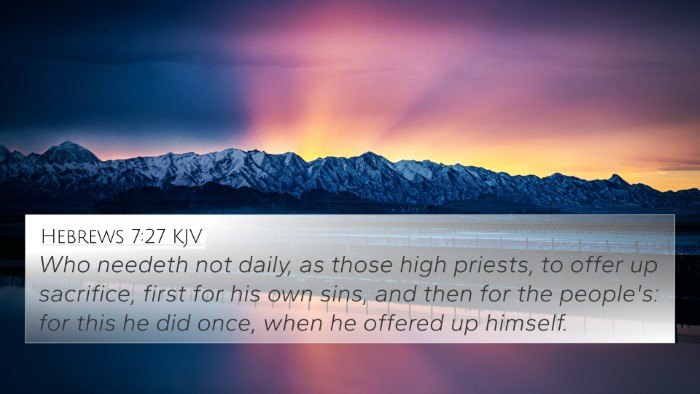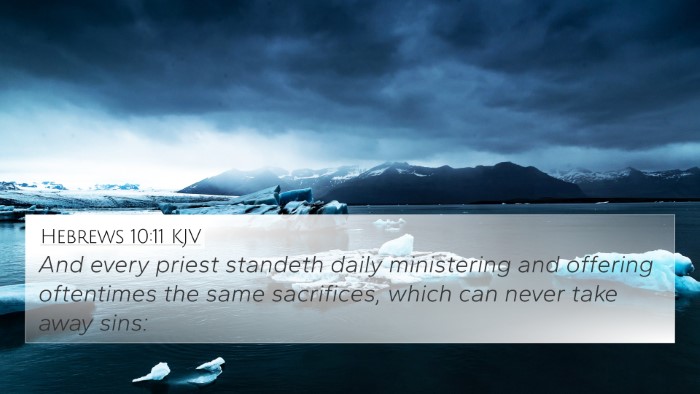Understanding Leviticus 8:34
Verse: "As he has done this day, so the Lord has commanded to do, to make an atonement for you." (Leviticus 8:34)
The verse encapsulates a significant moment in the ceremonial practices of the Old Testament, specifically concerning the consecration of Aaron and his sons as priests. It highlights the importance of obedience to God’s commandments in the matter of atonement and ritual purity.
Meaning and Context
This verse occurs within the context of the ordination and consecration of the Levitical priesthood. The rituals include various offerings and acts of dedication that symbolize the priests' role as mediators between God and His people.
Key Themes:
- Atonement: The act of atoning signifies a restoration of the relationship between God and humanity.
- Obedience: The emphasis on doing as commanded reinforces the necessity of following God’s directives.
- Consecration: The priesthood is established through divine appointment and sacred rituals.
Commentary Insights
Matthew Henry's Commentary
Henry emphasizes that the rituals performed by Aaron and his sons were not mere formalities but divinely mandated acts crucial for their role as priests. He notes that God’s commands should be adhered to strictly, serving as a testament to His holiness and the gravity of priestly duties.
Albert Barnes' Notes
Barnes points out that the phrase "as he has done this day" signifies the importance of the moment. He articulates that the rituals involved both public acknowledgment of God’s provisions and a responsibility to uphold His commandments in the service of the community.
Adam Clarke's Commentary
Clarke explains that this verse indicates the necessity of the people’s acknowledgment of their need for atonement through the priesthood. He underscores the transformative nature of obedience, which leads to divine favor and covenantal relationship.
Cross-References
Leviticus 8:34 can be cross-referenced with several key verses throughout the Bible that expand upon its themes:
- Exodus 29:36-37: The instructions for the offerings that purify the priests.
- Hebrews 10:1-4: A discussion on the insufficiency of the Old Covenant sacrifices compared to Christ’s ultimate sacrifice.
- Romans 12:1: The call for believers to present their bodies as living sacrifices, reflecting the concept of priesthood.
- 1 Peter 2:9: The priesthood of all believers, indicating a shift from the Levitical system to a broader understanding of priestly service.
- Leviticus 4:20: The importance of atonement in the sacrificial system for the community of Israel.
- Isaiah 53:5: Alludes to the suffering servant and ultimate atonement undertaken by Christ.
- Hebrews 9:22: The necessity of blood for the redemption of sins, connecting the Old Covenant with Christ.
Connections Between Bible Verses
The thematic connections between Leviticus 8:34 and the aforementioned verses reflect the continuity of God’s plan for redemption:
- The ordination of priests in Leviticus establishes the need for mediators in God's relationship with His people, a role ultimately fulfilled in Christ.
- Hebrews 10:1-4, which compares ceremonial laws to the spiritual offering of Christ, enhances understanding of the ultimate aim of Old Testament practices.
- The call to be a living sacrifice in Romans 12:1 connects the reader's duties in their spiritual walk to redemptive acts established in Levitical law.
- 1 Peter 2:9 interprets the priesthood functionally for all believers today, suggesting that connections span the breadth of scripture.
Thematic Bible Verse Connections
This verse serves as a bridge between the Old and New Testaments, allowing for a comparative study of how God's plan unfolds through different writings.
- Priestly Functions: The transition of priestly roles from Old Testament Levitical priests to the priesthood of believers.
- Atonement: The continuity of atonement themes from sacrifices of lambs to the Lamb of God, Jesus Christ.
- Obedience: The principle of obedience to divine command remains central throughout scripture.
Tools for Bible Cross-Referencing
For deeper studies on cross-referencing, utilizing various resources such as:
- Bible concordances for identifying themes across texts.
- Bible cross-reference guides that offer systematic approaches to exploring related verses.
- Comprehensive Bible cross-reference materials that provide insights on linking scripture.
User Intent and Application
When searching for how specific verses connect, consider:
- What verses are related to Leviticus 8:34?
- How do themes of atonement compare across scriptures?
- Find cross-references for priesthood and sacrificial themes in the Bible.
Conclusion
Leviticus 8:34 invites believers to reflect on the nature of God's commands and their significance in the biblical narrative. By utilizing Bible cross-referencing tools and understanding thematic connections, one can gain a deeper insight into the cohesive story of redemption that runs throughout the scriptures.





